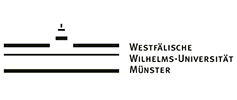Convergence or Borrowing: Standing in The Indonesian Constitutional Court
DOI:
https://doi.org/10.31078/consrev112Keywords:
Constitutional Convergence, Constitutional Borrowing, Doctrine of Standing, Constitutional CourtAbstract
This Article addresses the constitutional convergence theory by examining the standing rule in the Indonesian Constitutional Court. The central investigation of this paper is whether the application of standing doctrine in the Indonesian Constitutional Court is evidence of constitutional convergence or of borrowing? This paper argues that the Constitutional Court jurisprudence on standing indicates that constitutional convergence has never taken place but rather the Court has engaged in constitutional borrowing. Legal borrowing on standing is limited to the carbon copy of the five-prong standing tests of the U.S. model, but in reality standing doctrine in the Indonesian Constitutional Court is not based on the private rights model of adjudication. Although the Court allows individuals to bring cases before the Court, it is rather a quasi-public model of standing, in which claimants no longer have standing only to vindicate their own private rights but can also sue to vindicate public interests. Standing requirements also allow the judges to review many highly sensitive political cases, and to some extent it enables the Court to second guess the decisions of the different branches of government.References
Aharon Barak, “A Judge on Judging: The Role of A Supreme Court In A Democracy,” 116 Harv. L. Rev. 16 (November, 2002), 107 – 108; See also Aharon Barak, The Judge In A Democracy, Princeton, New Jersey: Princeton University Press, 2006.
Antonin Scalia, A matter of interpretation: federal courts and the law : an essay (1997).
Anne Marie Slaughter, A Global Community of Courts, 44 Harv. Int’l L. J., 2003.
Arthur Ripstein, Private Order and Public Justice: Kant and Rawls, 92 Va. L. Rev. 1391 (2006), 1416.
David Law, Globalization and the Future of Constitutional Rights, 102 Nw. U.L. Rev, 2008.
------------, The Evolution and Ideology of Global Constitutionalism, 99 Calif. L. Rev. 2011.
David Law and Mila Versteeg, The Declining Inf!uence of the United States Constitution, 87 N.Y.U.L. Rev. 762, 781.
Erwin Chemerinksy, Constitutional Law: Principles and Policies (2006).
Hendrianto, From Humble Beginnings to a Functioning Court: The Indonesian Constitutional Court, 2003 – 2008 (Unpublished PhD Dissertation, University of Washington, 2008) (on file with author).
John F. Muller, The Constitutional Incompleteness Theorem, 15 U. Pa. J. Const. L. 1373 (May 2013).
Mark Tushent, The Inevitable Globalization of Constitutional Law, 49 Va. J. Int’l L., 2009, 985.
Maxwell L. Stearns, Constitutional Process: A Social Choice Analysis of Supreme Court Decision Making (2000), 218.
Mina Susana Setra, Indigenous Peoples in Indonesia: The Struggle for “Legal” Recognition, presentation at International Conference on Scaling-Up Strategies to Secure Community Land and Resource, Interlaken, Switzerland, September 19-20, 2013.
Paul B. Stephan, Courts on Courts: Contracting For Engagement and Indifference in International Judicial Encounters, 100 Va. L. Rev, 2014.
Richard S. Kay, “Standing to Raise Constitutional Issues: A Comparative Analysis,” in Richard S. Kay (ed.), Standing to Raise Constitutional Issues: Comparative Perspectives (2005).
Rosalind Dixon and Eric Posner, The Limits of Constitutional Convergence, 11 Chi. J. Int’l L, 2011.
Simon Butt & Tim Lindsey, Economic Reform When the Constitution Matters: Indonesia’s Constitutional Court and Article 33 of the Constitution (The University of Sydney, Sydney Law School, Legal Studies Research Paper No. 09/29), May 2009.
Steven Winter, The Metaphor of Standing and the Problem of Self Governance, 40 Stan. L. Rev, 1393.
Zachary Elkins, Tom Ginsburg, and Beth Simmons, Getting to Rights:Treaty Ratification, Constitutional Convergence, and Human Rights Practice, 54 Harv. Int’l L.J., 2013.
Law Number 32 of 2004 on the Regional Governance, article 59 (2). Law Number 7 of 2004 on Water Resources.
The Constitutional Court decision no. 006/PUU-III/2005, reviewing the Law No. 32 of 2004 on the Regional Government [Pemerintahan Daerah – Pemda) (hereinafter the Pemda Law III case).
The Constitutional Court decision no. 006/PUU-III/2005, reviewing the Law No. 32 of 2004 on the Regional Government [Pemerintahan Daerah – Pemda) (hereinafter the Pemda Law III case), at 16.
The Constitutional Court decision no. 001-021-022/PUU-I/2003, reviewing Law No.
20 of 2000 on the Electricity (hereinafter the Electricity Law case).
The Constitutional Court decision no. 002/PUU-I/2003, reviewing Law No. 22 of 2001 on the Oil and Gas (hereinafter the Oil and Gas Law I case).
The Constitutional Court decision no. 003/PUU-I/2003, reviewing Law No. 24 of 2002 on the Government Securities Law (hereinafter the Government Securities Law case).
The Constitutional Court decision no. 35/PUU-X/2012, reviewing Law No. 41 of 1999 (hereinafter the Alliance of Indigenous People case).
The Constitutional Court decision no. 79/PUU-IX/2011, reviewing Law No. 39 of 2008 on the Cabinet Minister (hereinafter the Deputy Minister case).
The Constitutional Court decision no. 14/PUU-XI/2013 reviewing Law No. 42 of 2008 on the Presidential Election (hereinafter the Presidential Election Law case).
The Constitutional Court decision no. 002/PUU-I/2003, reviewing Law No. 22 of 2001 on the Oil and Gas (hereinafter the Oil and Gas Law I case).
The Constitutional Court decision no. 49/PUU-VIII/2010, reviewing Law No. 16/2004 on the Attorney General Office (hereinafter the Attorney General case).
The Constitutional Court decision no. 36/PUU-X/2012, reviewing Law No. 22 of 2001 on the Oil and Gas (hereinafter the Oil and Gas III case / BP Migas case). The Court finished the deliberation meeting on November 5th 2012 and it announced the decision on November 13, 2012.
The Constitutional Court Decision No. 22-24/PUU-VI/2008, reviewing the Law No. 10 of 2008 on the Election of National and Regional Parliament (hereinafter Mohammad Sholeh case).
The Water Resources Law case, the Constitutional Court decision no. 058-059- 060-063/PUU-II/2004.
Antonin Scalia, A matter of interpretation: federal courts and the law : an essay (1997).
Anne Marie Slaughter, A Global Community of Courts, 44 Harv. Int’l L. J., 2003.
Arthur Ripstein, Private Order and Public Justice: Kant and Rawls, 92 Va. L. Rev. 1391 (2006), 1416.
David Law, Globalization and the Future of Constitutional Rights, 102 Nw. U.L. Rev, 2008.
------------, The Evolution and Ideology of Global Constitutionalism, 99 Calif. L. Rev. 2011.
David Law and Mila Versteeg, The Declining Inf!uence of the United States Constitution, 87 N.Y.U.L. Rev. 762, 781.
Erwin Chemerinksy, Constitutional Law: Principles and Policies (2006).
Hendrianto, From Humble Beginnings to a Functioning Court: The Indonesian Constitutional Court, 2003 – 2008 (Unpublished PhD Dissertation, University of Washington, 2008) (on file with author).
John F. Muller, The Constitutional Incompleteness Theorem, 15 U. Pa. J. Const. L. 1373 (May 2013).
Mark Tushent, The Inevitable Globalization of Constitutional Law, 49 Va. J. Int’l L., 2009, 985.
Maxwell L. Stearns, Constitutional Process: A Social Choice Analysis of Supreme Court Decision Making (2000), 218.
Mina Susana Setra, Indigenous Peoples in Indonesia: The Struggle for “Legal” Recognition, presentation at International Conference on Scaling-Up Strategies to Secure Community Land and Resource, Interlaken, Switzerland, September 19-20, 2013.
Paul B. Stephan, Courts on Courts: Contracting For Engagement and Indifference in International Judicial Encounters, 100 Va. L. Rev, 2014.
Richard S. Kay, “Standing to Raise Constitutional Issues: A Comparative Analysis,” in Richard S. Kay (ed.), Standing to Raise Constitutional Issues: Comparative Perspectives (2005).
Rosalind Dixon and Eric Posner, The Limits of Constitutional Convergence, 11 Chi. J. Int’l L, 2011.
Simon Butt & Tim Lindsey, Economic Reform When the Constitution Matters: Indonesia’s Constitutional Court and Article 33 of the Constitution (The University of Sydney, Sydney Law School, Legal Studies Research Paper No. 09/29), May 2009.
Steven Winter, The Metaphor of Standing and the Problem of Self Governance, 40 Stan. L. Rev, 1393.
Zachary Elkins, Tom Ginsburg, and Beth Simmons, Getting to Rights:Treaty Ratification, Constitutional Convergence, and Human Rights Practice, 54 Harv. Int’l L.J., 2013.
Law Number 32 of 2004 on the Regional Governance, article 59 (2). Law Number 7 of 2004 on Water Resources.
The Constitutional Court decision no. 006/PUU-III/2005, reviewing the Law No. 32 of 2004 on the Regional Government [Pemerintahan Daerah – Pemda) (hereinafter the Pemda Law III case).
The Constitutional Court decision no. 006/PUU-III/2005, reviewing the Law No. 32 of 2004 on the Regional Government [Pemerintahan Daerah – Pemda) (hereinafter the Pemda Law III case), at 16.
The Constitutional Court decision no. 001-021-022/PUU-I/2003, reviewing Law No.
20 of 2000 on the Electricity (hereinafter the Electricity Law case).
The Constitutional Court decision no. 002/PUU-I/2003, reviewing Law No. 22 of 2001 on the Oil and Gas (hereinafter the Oil and Gas Law I case).
The Constitutional Court decision no. 003/PUU-I/2003, reviewing Law No. 24 of 2002 on the Government Securities Law (hereinafter the Government Securities Law case).
The Constitutional Court decision no. 35/PUU-X/2012, reviewing Law No. 41 of 1999 (hereinafter the Alliance of Indigenous People case).
The Constitutional Court decision no. 79/PUU-IX/2011, reviewing Law No. 39 of 2008 on the Cabinet Minister (hereinafter the Deputy Minister case).
The Constitutional Court decision no. 14/PUU-XI/2013 reviewing Law No. 42 of 2008 on the Presidential Election (hereinafter the Presidential Election Law case).
The Constitutional Court decision no. 002/PUU-I/2003, reviewing Law No. 22 of 2001 on the Oil and Gas (hereinafter the Oil and Gas Law I case).
The Constitutional Court decision no. 49/PUU-VIII/2010, reviewing Law No. 16/2004 on the Attorney General Office (hereinafter the Attorney General case).
The Constitutional Court decision no. 36/PUU-X/2012, reviewing Law No. 22 of 2001 on the Oil and Gas (hereinafter the Oil and Gas III case / BP Migas case). The Court finished the deliberation meeting on November 5th 2012 and it announced the decision on November 13, 2012.
The Constitutional Court Decision No. 22-24/PUU-VI/2008, reviewing the Law No. 10 of 2008 on the Election of National and Regional Parliament (hereinafter Mohammad Sholeh case).
The Water Resources Law case, the Constitutional Court decision no. 058-059- 060-063/PUU-II/2004.
Downloads
Published
2016-03-28
How to Cite
Hendrianto, S. (2016). Convergence or Borrowing: Standing in The Indonesian Constitutional Court. Constitutional Review, 1(1), 28–49. https://doi.org/10.31078/consrev112
Issue
Section
Articles
































































